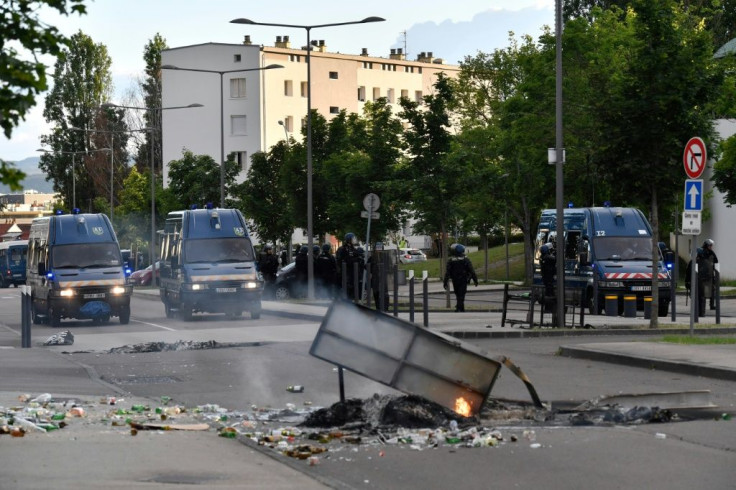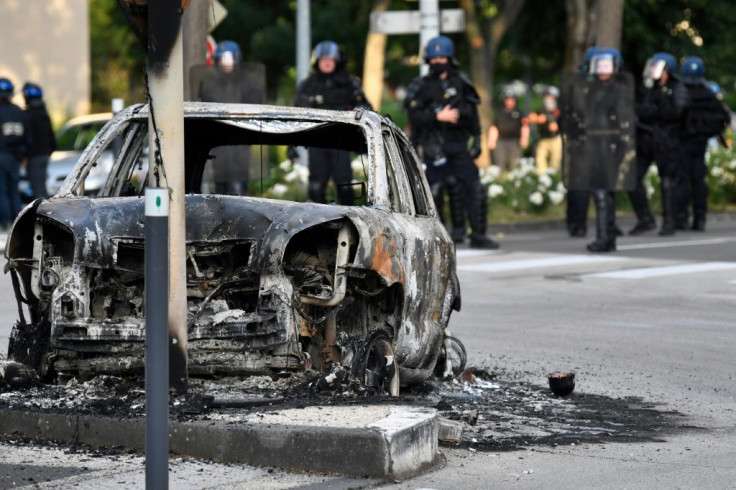Anger In France After New Unrest Over Chechen Score-settling

Political leaders in France on Tuesday expressed outrage after the usually placid eastern city of Dijon was hit by another night of unrest linked to score-settling by members of the Chechen community.
Dijon has now seen four consecutive nights of unrest and scenes that have shocked the country.
According to police, the incidents appear to have been sparked by an assault this month on a 16-year-old Chechen boy, prompting other members of the community to go on reprisal raids seeking vengeance.
The Chechens reportedly had travelled to Dijon from all over France and even from neighbouring countries such as Belgium and Germany.
Their actions have focused on the low-income district of Gresilles which has a large community of people originally from North Africa.
On Monday evening, dozens of hooded men carrying arms and crowbars gathered in Gresilles, shooting in the air, destroying video surveillance cameras and setting fire to bins and vehicles, police told AFP.
Riot police needed one-and-a-half hours to put an end to the violence, leaving the area calm at night as bins and cars continued to burn. Four people were detained.
"Seeing young people brandishing arms, 100 people fighting, who are being aggressive, it's unacceptable," Agriculture Minister Didier Guillaume told the CNews channel.
Far-right leader Marine Le Pen, who rarely wastes a chance to criticise the government of President Emmanuel Macron for public order failings, said she would head to Dijon to hold a press conference later in the day.
"Our country is plunging into chaos! What is (Interior Minister) Christophe Castaner doing? Gangs are going around in ethnic warfare with automatic weapons in their hands," tweeted the National Rally party leader.

The socialist mayor of Dijon, Francois Rebsamen, had criticised what he saw as insufficient police deployment over the weekend.
"As justice comes too late and the police do not have the means, the Chechen community decided to take the law into its own hands," he told BFMTV.
Regional prefect Bernard Schmeltz -- the top local state official -- defended the lack of forceful intervention on previous nights by the security forces. The tactic of encirclement used "was the only practical strategy", he said.
"The local residents were not left abandoned," he added, following criticism of the apparent passivity of the security forces in the face of the violence.
And he said that the latest violence on Monday night was due to local Dijon residents and not members of the Chechen community.
Chechnya is a predominantly Muslim Russian republic in the North Caucasus. Two wars in the 1990s triggered a wave of emigration, with many Chechens heading for western Europe.
More Chechens have also flowed into exile in recent years due to their disagreements with the strongman pro-Kremlin leader of the region Ramzan Kadyrov, who rights activists accuse of multiple violations.
There are no precise figures on the number of Chechens living in France as they are included with other Russian passport holders. There are communities in Paris, around Nice in the south and in the east of France.
© Copyright AFP {{Year}}. All rights reserved.




















